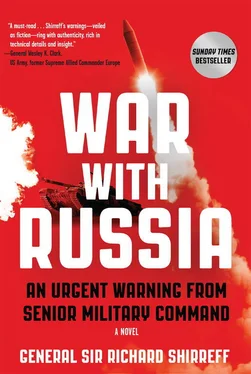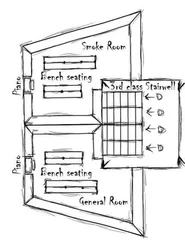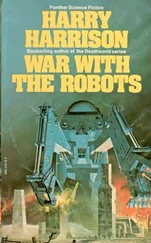Thank God though for those negligently fired shots and the machine-gun fire that followed it. Morland could still remember the sudden sound of the distant rounds as they shattered the silence of the forest, startling him into shocked wakefulness. He knew full well, and Wild had not stopped reminding the team since, that it was only the speed of their constantly rehearsed bug-out drills that had enabled them to escape the well-placed trap.
As he went through his now all-too-familiar “lying-up” routine, he was conscious of the faint rustles of the others doing the same; quietly, systematically and professionally. In mere minutes the movements stopped. The forest fell silent, except for the hoot of an owl and the scuffling of a distant wild boar rooting around for food in the undergrowth.
However, desperate for sleep as he was, with their objective now so close by, Morland found himself on full alert, ears cocked, listening for anything that might indicate they’d been compromised. Try as he might to convince himself he was imagining things, he kept seeing the face of the Russian Spetsnaz commander who had stared so intently at him when he’d roared past on the back of an escaping scrambler bike as the dawn light penetrated the forest: medium height, early thirties, close-cropped, dark hair, and wearing green combats, with no identifying insignia or badges. The man who had orchestrated the riot in Riga, the man he’d seen talking into his radio just before the snipers opened up on the crowd in the Vermanes Gardens, the man who had ordered the cold-blooded execution of those young girls. One glance had been enough, but when they had finally stopped at the next secret bunker, he had checked the pictures on his camera. It was the same man.
Again, the same thought recurred: what was that Russian doing there, leading an ambush, when a man of his evident importance surely had more important things to do? And was it paranoia, brought on by fear and exhaustion and that single stare, that now had Morland wondering whether it was him the Russian had been seeking? If so, was the Russian still tracking him? Because, if the Spetsnaz commander had managed to find them once in the wilderness, might he be able to do so again? Was he closing in on them even now?
They had moved from hide to hide, never staying long enough to give away evidence of their occupation—tracks worn in the forests, the build-up of rubbish and bodily wastes, all potential giveaways to determined searchers with sophisticated kit. Some hides had been built so deep underground that they would defeat the most advanced heat-seeking drones. But after their near capture they had continued to move, regardless.
They had been equally disciplined in their infrequent use of the radio, always traveling some distance away from their hides to send information and receive orders; Corporal Steve Bradley, his Kiwi signaler, obsessive about never transmitting for too long. But still Morland worried; fears for which he had no answers, fears he had decided to keep to himself rather than alarm the others. They were all stressed enough as it was. Weeks of ambushes and intelligence gathering, followed by high-speed changes of location to throw off any pursuers, had taken them all to the edge.
Silence: time to trust the sentry and get some much-needed sleep. As he forced himself to relax, Morland caught the warm reek of his filthy combat kit and unwashed body. We’ve pretty much gone feral , he thought. Wild beards, matted, filthy hair and scrawny from living on the dwindling and ever-more basic field rations that the Latvians and Lithuanians had shared with them. Not that it mattered. They all smelt as bad as one another and they hardly noticed the stench. In fact, even if they had been able to, they wouldn’t have washed as the smell of soap could be enough to give them away to a patrol or a wild animal, so drawing attention to their position.
He’d expected his guys to cope; after all, they were experienced infantrymen and recce men, and they had done so—despite the usual grumbles. The Lithuanians, like the Latvians, were naturals. But, and somewhat to his surprise, Krauja had been the star. She had put up with the hardships, had taken her share of the stags, and her surveillance expertise had made her invaluable recceing the compound. More than that, behind her natural Latvian reserve, she could display a soldier’s sense of humor and, when minded, could banter with the best of them.
But now was not the time to be thinking about her; now was the time to go through his mental check list for tomorrow. Move out from here after last light, a five-kilometer tab through the forest to the final RV. Then move into position near the DZ—Drop Zone—ready to guide in the US Special Forces ODA, who were due to parachute in by HAHO—high altitude, high opening—with the radar transponder beacon Lukša had with him. Once they’d linked up with the Americans, the ODA would mark out an LZ—Landing Zone—for the helicopters bringing in the air assault force. His task was to then lead the Americans forward to recce the compound and bunker with its perimeter fence and minefield.
At the prospect of getting up close to the perimeter again, Morland felt the now-familiar cold grip of raw fear in the pit of his stomach. They’d chanced it last time and got away with it. To go back to that ring of steel and death was asking for trouble. But he consoled himself with the thought that, once they’d guided the airborne to the wire, it was job done. They were to step back and let the Americans do whatever it was they had come to do. The trouble was, in his rapidly increasing experience, he doubted it would work out like that once the bullets started flying. Plans seldom did. However, of one thing he was certain, there was nothing he could do about it right now. Instead, he closed his eyes and, body cushioned on a deep layer of last year’s pine needles, he slept.
1330 hours, Saturday, July 8, 2017
Headquarters, Kaliningrad Special Region, Kaliningrad
MAJOR ANATOLY NIKOLAYEVICH Vronsky marched into the temporary office of Colonel General Arkady Vasilyevich Kirkorov, the Commander of Western Military District, the man in charge of suppressing the Baltic insurgency.
Vronsky threw a smart, parade-ground salute. He then stood rigidly at attention, waiting for the general to speak, braced for another outburst of rage similar to the last occasion, five weeks previously, when he had debriefed him in St. Petersburg on the failure of the camp attack on the British guerrilla team.
Ordered by the President to oversee the capture of the British terrorists, Kirkorov had exploded in fury when Vronsky had blamed the failure of the attack on the poor discipline, training and weapons handling of the conscripts from the general’s beloved Motor Rifle troops. Vronsky was in no doubt that, but for the personal orders of the President, he would have been heading for the gulag.
Vronsky stood silent, eyes fixed firmly on the wall above the line of the general’s shaven bullet-head as he studied a Top Secret file spread on the desk in front of him. The key to survival in these situations, he knew—whether you were a highly decorated Spetsnaz officer or the newest recruit—was never to catch the senior officer’s eye.
Men like Kirkorov were not, in Vronsky’s experience, easy to deal with. An old-school Soviet type, he had first come to the attention of his superiors in Afghanistan in the 1980s for the scorched-earth approach he had taken to root out the Mujahidin in the Panjshir valley, regardless of the casualties to the civilian population. Subsequently, his promotion had been guaranteed as a result of the equally brutal tactics he employed as a Motor Rifle regiment commander in the Chechen wars; what he described with pride as “bringing discipline to the territory of the Chechen Republic,” but which left thousands of men, women and children dead, the capital city Grozny looking like Stalingrad, and a lasting legacy of hatred of Russia among the Muslim population of the Caucasus. A hatred that made it very much harder for the new generation of Russian Spetsnaz, like Vronsky, to establish networks of informers among the locals in order to root out and crush the insurgents.
Читать дальше












